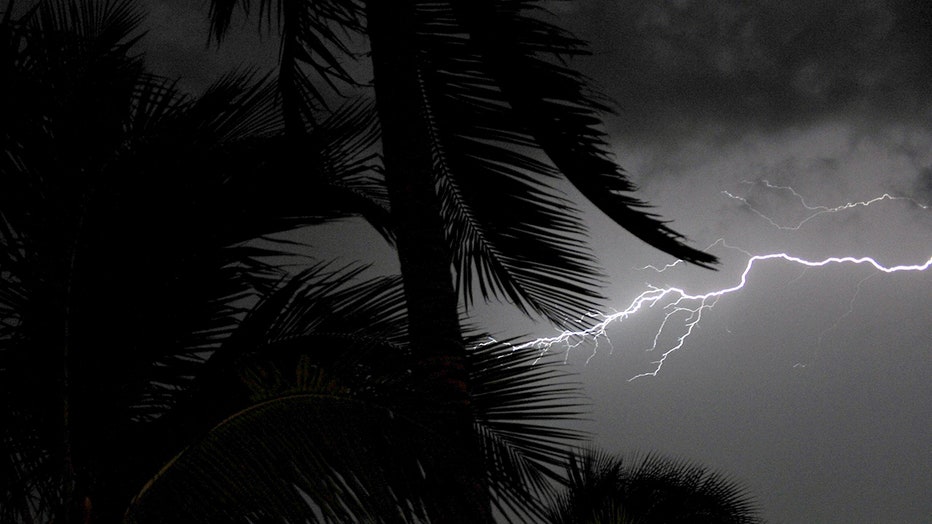When thunder roars, go indoors: Lightning strikes pose threat, even when skies above are sunny
TAMPA, Fla. - With so many new people moving to the Tampa Bay area, newcomers may not realize how common lightning strikes are, and Tampa Bay is known by many to be the lightning capital of North America.
This week is Lightning Safety Awareness Week and the National Weather Service is focusing on saving lives.
"Lightning kills on average about 21 people across the country, throughout the year, and we're trying to keep that as low as possible," said Tyler Fleming, a meteorologist with National Weather Service Tampa Bay.
MORE: Debunking 7 myths about lightning
Deaths are trending down, Fleming said. According to NOAA, lightning strikes killed 11 people in 2021, four of which were in Florida. Three of those happened in the Tampa Bay area.
In 2020, 17 people died from lightning and three of them were in Florida; 20 people died in 2019 with three of them in Florida.

Lightning strikes over Biscayne Bay in Coral Gables on September 19, 2012. AFP PHOTO/Nicholas KAMM (Photo credit should read NICHOLAS KAMM/AFP/GettyImages)
"Well, I think people have been paying more attention. Certainly with smartphones, it's easier to keep an eye on the radar risk or the threat of storms on the radar," said Fleming.
In case of a lightning strike, the first thing to do is call 911, and then give first aid. If there’s a defibrillator nearby, weather experts say to use it because it can be a lifesaver.
Father, daughter struck by lightning after Yankees Spring training game called off
Ashley Moberg and her dad were in town over the weekend for a Yankes Spring Training game. They were hit by lightning in the Raymond James parking lot after the game was called off.
The saying "when lightning roars, go indoors" is around for a reason. FOX 13 Chief Meteorologist Paul Dellegatto said victims survive being struck, and the skies don’t have to be dark and gloomy for there to be a risk.
"Lightning can strike seven miles to 10 miles away from the parent thunderstorm. So even though you see a thunderstorm in the distance, you hear thunder, technically you’re in danger of being hit," said Dellegatto.
Writing helps woman cope with loss of friend after lightning strike
A Tampa woman went through something that not everyone lives to tell about. Sadly, she knows that all too well. Three years ago, Karen Maharaj and the man she was dating were struck by lightning on Siesta Key Beach. He was killed by the bolt. Maharaj used writing as a way to process and cope with the loss. Heading into storm season, she hopes her words might just save someone else's life.
MORE: After surviving deadly lightning strike, woman turns to writing to cope with loss of friend
People who survive lightning often suffer lingering disabilities or health issues.
"A lot of folks sit on the beach, and I see lightning all over Clearwater Beach and not paying attention to what’s behind them. So the beach is a bad place to be, fishing is a bad place to be. Really you’ve got to be inside, you’ve got to be in shelter," said Dellegatto.
Heroes meet teen they saved after lighting strike
A handful of good Samaritans who jumped into action after a teen was struck by lighting got to meet the recovering victim.
RELATED: Teen who survived Labor Day lightning strike meets good Samaritans who saved his life
If a building isn’t an option for a shelter, NOAA recommends staying in a car and waiting at least 30 minutes after hearing the last rumble of thunder.

